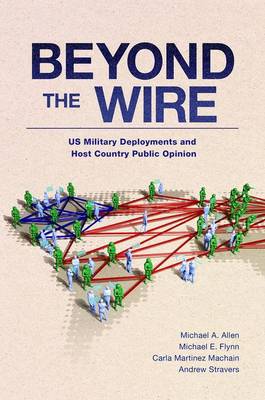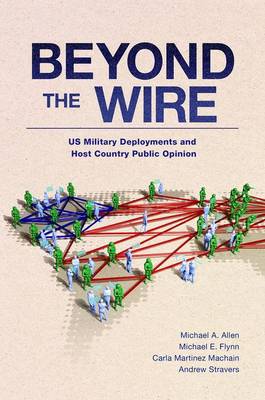
- Afhalen na 1 uur in een winkel met voorraad
- Gratis thuislevering in België vanaf € 30
- Ruim aanbod met 7 miljoen producten
- Afhalen na 1 uur in een winkel met voorraad
- Gratis thuislevering in België vanaf € 30
- Ruim aanbod met 7 miljoen producten
Zoeken
Beyond the Wire
Us Military Deployments and Host Country Public Opinion
Carla Martinez Machain, Michael A Allen, Michael E Flynn, Andrew Stravers
€ 59,95
+ 119 punten
Omschrijving
In a time where US deployments are uncertain, this book shows how US service members can either build the necessary support to sustain their presence or create added animosity towards the military presence. The United States stands at a crossroads in international security. The backbone of its international position for the last 70 years has been the massive network of overseas military deployments. However, the US now faces pressures to limit its overseas presence and spending. In Beyond the Wire, Michael Allen, Michael Flynn, Carla Martinez Machain, and Andrew Stravers argue that the US has entered into a "Domain of Competitive Consent" where the longevity of overseas deployments relies upon the buy-in from host-state populations and what other major powers offer in security guarantees. Drawing from three years of surveys and interviews across fourteen countries, they demonstrate that a key component of building support for the US mission is the service members themselves as they interact with local community members. Highlighting both the positive contact and economic benefits that flow from military deployments and the negative interactions like crime and anti-base protests, this book shows in the most rigorous and concrete way possible how US policy on the ground shapes its ability to advance its foreign policy goals.
Specificaties
Betrokkenen
- Auteur(s):
- Uitgeverij:
Inhoud
- Aantal bladzijden:
- 272
- Taal:
- Engels
- Reeks:
Eigenschappen
- Productcode (EAN):
- 9780197633410
- Verschijningsdatum:
- 17/10/2022
- Uitvoering:
- Paperback
- Formaat:
- Trade paperback (VS)
- Afmetingen:
- 156 mm x 237 mm
- Gewicht:
- 399 g

Alleen bij Standaard Boekhandel
+ 119 punten op je klantenkaart van Standaard Boekhandel
Beoordelingen
We publiceren alleen reviews die voldoen aan de voorwaarden voor reviews. Bekijk onze voorwaarden voor reviews.








